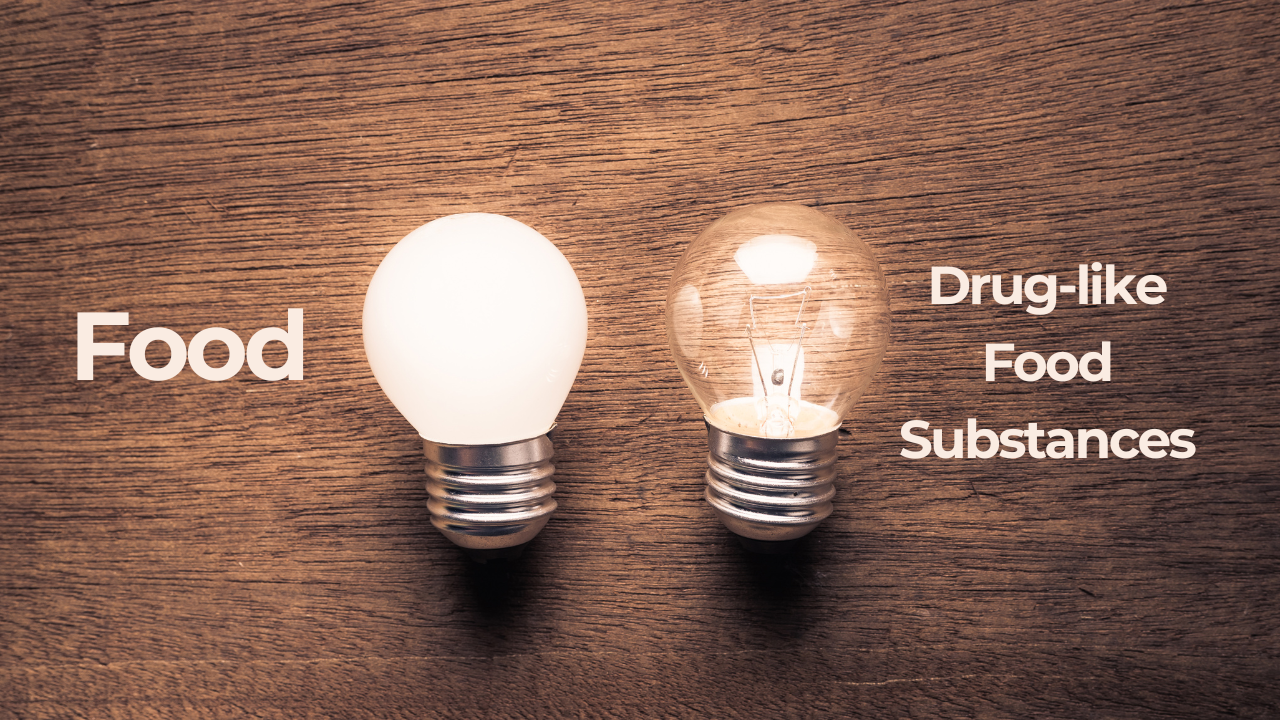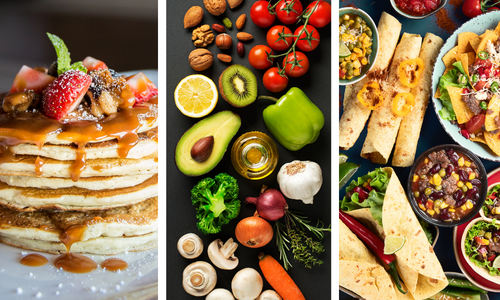The Difference between food and drug-like food Substances

Issue No. 6 | Brought to you by the Addiction Reset Community – ARC
Unlocking the secrets of processed food addiction and guiding you to find freedom from food and weight obsession.

Understanding the difference between food and addictive substances can help us to understand why processed foods should be avoided.
Food addiction may have developed as the result of ‘food products’ being formulated to have addictive properties. It would be natural then to be confused about the difference between food and addictive substances since products being sold as food can have an impact similar to that of addictive substances.
Thinking about the difference between food and addictive substances can help clarify the situation and give food addicts a better framework for food choices.
The function of food is to:
- Nourish
- Provide amino acids, essential fats, or fiber
- Provide vitamins or minerals
- Sustain growth

Do processed foods generally perform these functions? No!
The actions of recreational drugs:
- Provide a high
- Provide a crash
- Addict through cravings
- Create a withdrawal syndrome
- Require abstinence as an effective treatment
- Have 12-step societies for lifetime recovery Promote compulsive use to the detriment of the user
- Require progressively greater quantities to get ‘high’
- Are mood-altering

Do processed foods do this? YES!
When we encounter training about drug avoidance, we can tie the lessons to processed foods and be reinforced in our motivation for avoiding those foods.

Within the Addiction Reset Community (ARC) our members and their journeys are important to us. We find their stories inspiring and hopeful for everybody in health recovery.
I started my quest for improved health with many different suggestions, based on my medical diagnosis. I even committed to a personal trainer to get in shape. I was miserable and felt like a failure. I’d been trying to turn my health around for about 9 years. What it did for me was start me thinking that my life was worth more. However, every time I made a healthy change, it would just be a matter of time before I lapsed.
Then in January 2021 my friend told me about the Addiction Reset Community (ARC) and invited me to the ARC’s RESET week at the end of that month. I remember seeing an email confirmation after I’d registered. In it, Joan spoke about making a commitment or setting an intention to reset something for yourself. I took that literally and decided to get onto my clean eating plan in that week. The ARC was the missing link for me. Helping me find ways to adjust my life, behavior and limiting beliefs - this made all the difference. I'm here to stay and am committed to my recovery thanks to the ARC.

Many people reach out to Joan asking for advice and assistance on how they can begin their recovery journey.
Dear Joan:
I have stenosis, bone spurs and arthritis in my back from my neck to my tailbone. When I eat bread products, especially bagels, this greatly increases my pain level. Are these foods associated with pain?
Joan responds:
Yes, processed foods are inflammatory. This can put pressure on nerves, especially at the site of an injury. Without the inflammation from processed foods, these pain sites may not hurt as much, but with the inflammation, it can become painful. Pain medications can also have dangerous side effects. Try eliminating processed foods and notice if you feel a reduction in pain.
DISCLAIMER:
Dr Joan Ifland (PhD) is a global expert on the subject of processed food addiction and is not a medical doctor. Information and response shared in this Newsletter are not intended for, and should not be construed as medical advice.

Do you have a question? Reach out to us with your questions about food addiction and recovery at gethelp@foodaddictionreset.com
Are you showing signs of Processed Food Addiction? Take this self-quiz to find out now!

Recent copies of Dr Joan Ifland's Blog:

